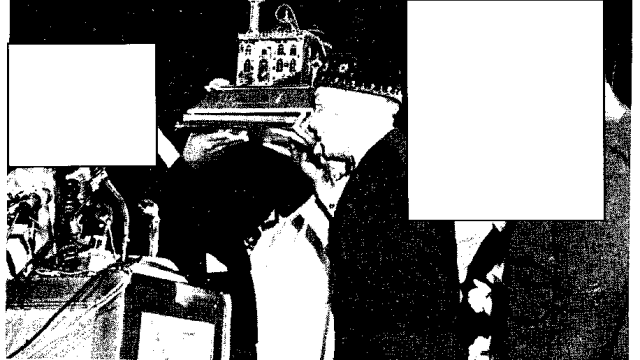The government hides information all the time, for a variety of reasons. As a recently unredacted court documents show, some of those reasons are flabbergasting-dumb.
Yesterday I wrote about Nicholas Merrill, a man who beat an 11-year gag order from the FBI to talk about rejecting a National Security Letter request for his internet service customer’s information. Merrill was able to publish a version of the court’s decision in his favour without redactions.
As blogger Marcy Wheeler pointed out, comparing the unredacted court decision to vacate the gag order to the previously-published redacted version makes it clear that the FBI used redacted to hide remarks from US District Judge Victor Marrero explicitly mocking the FBI’s choices to hide information in the case, including the FBI’s insistence on redacting a single “s” at the end of the word “numbers.” (She underlined the information originally redacted; I bolded it.)
As another example of the extreme and overly broad character of these redactions, the Government apparently believes that while the public can know that it seeks records of an “address” and a “telephone number,” there is a “good reason” to prevent disclosure of the fact that the Government can seek “addresses” and “telephone numbers.” (See Gov’t Mem. Attach.) In any event, based on the Government’s redactions alone, a potential target of an investigation, even a dim-witted one, would almost certainly be able to determine, simply by running through the alphabet, that “telephone numberll” could only be “telephone numbers.” Redactions that defy common sense such as concealing a single letter at the end of a word diminish the force of the Government’s claim to “good reason” to keep information under seal, and undermine its argument that disclosure of the currently-redacted information in the Attachment can be linked to a substantial risk of an enumerated harm.
Marrero’s comment that some of the information that the FBI was redacting was already common knowledge was — you guessed it — also completely redacted:
10 Also interestingly, the Perdue Declaration argues that the category of “[a] ny other information which [the recipient] consider [s] to be an electronic communication transactional record” should not be disclosed. (See Perdue Deel. , 70.) However, this category was not redacted by the Government in its submissions or even in the Perdue Declaration.
These redactions are a clear overstep on the FBI’s part. What’s the argument here? That national security will be threatened if terrorists realise a judge thinks the FBI is employing daft secrecy fetishists with poor abilities to make distinctions between actual state secrets and accurate insults? I didn’t realise getting brutally owned was classifiable.
Photo: Wikimedia Commons
